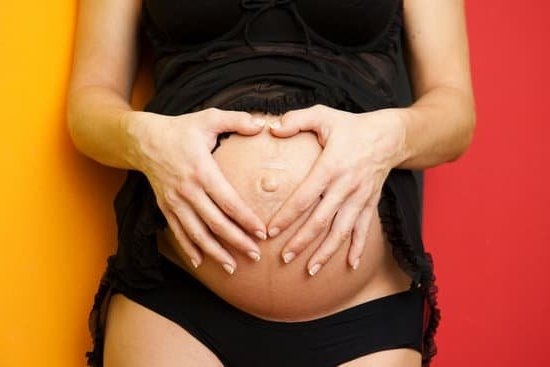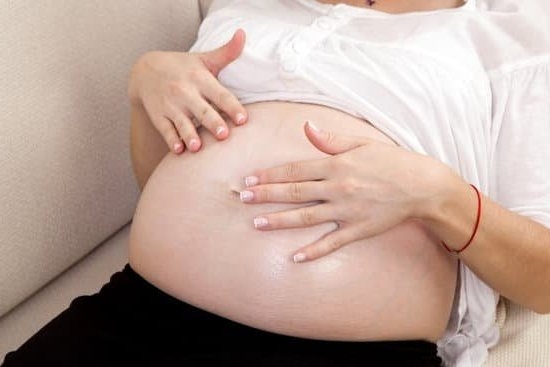Can you have pregnancy symptoms before a positive test? Many women wonder about the possibility of experiencing signs of pregnancy, such as nausea or fatigue, even before a pregnancy test confirms their suspicions. Understanding early pregnancy symptoms is crucial for those trying to conceive or concerned about a potential unexpected pregnancy.
Research in the field of early pregnancy symptoms has provided insight into the various physical and emotional changes that can occur shortly after conception. By exploring medical studies and findings, we can gain a better understanding of what to look out for when it comes to early signs of pregnancy.
From common symptoms like morning sickness and exhaustion to less typical indicators such as spotting and cramping, knowing what to expect can help individuals recognize if they may be pregnant even before receiving a positive test result. It’s essential to differentiate between misleading symptoms that mimic premenstrual syndrome (PMS) and true signs of early pregnancy. Understanding the reasons behind these symptoms, including hormonal fluctuations and implantation processes, can provide clarity and reassurance for those experiencing them.
Study on Early Pregnancy Symptoms
Current Research on Early Pregnancy Symptoms
Recent studies have shed some light on the phenomenon of experiencing pregnancy symptoms before receiving a positive test result. While traditional medical belief held that symptoms would only present after the confirmation of pregnancy, newer research suggests otherwise. A study published in the Journal of Reproductive Medicine found that some women who reported early pregnancy symptoms had actually higher levels of hCG, the hormone detected in pregnancy tests, even before a positive test result.
Hormonal Changes and Symptom Onset
One explanation for experiencing pregnancy symptoms before a positive test could be attributed to hormonal changes in the body. During early pregnancy, hormonal fluctuations can trigger physical and emotional changes that mimic common symptoms like nausea, fatigue, and breast tenderness. These hormonal shifts may occur even before implantation takes place, leading to these early signs.
The Psychological Impact of Pre-Positive Test Symptoms
Experiencing symptoms before a confirmed positive test can have both psychological and emotional implications for individuals trying to conceive. It can be a source of anxiety and excitement, as individuals navigate the uncertain wait for confirmation.
Moreover, managing expectations and knowing how to interpret these early signs can play a crucial role in emotional well-being during this sensitive time. It is essential to remember that each person’s experience with pregnancy symptoms may vary, and consulting healthcare professionals for guidance can provide clarity and support during this period of anticipation.
Common Early Pregnancy Symptoms
During the early stages of pregnancy, many women experience a range of symptoms that can indicate the presence of a pregnancy before taking a test. One of the most common early pregnancy symptoms is nausea, often referred to as morning sickness.
This symptom can vary from mild queasiness to severe vomiting and may occur at any time of day, not just in the morning. Nausea is believed to be caused by hormonal changes in the body, specifically an increase in human chorionic gonadotropin (hCG) levels.
Another prevalent symptom is fatigue, which can be overwhelming for some pregnant individuals. This extreme tiredness is often attributed to the increased production of progesterone in the body during early pregnancy. The surge in this hormone can cause drowsiness and a lack of energy, making everyday tasks feel more challenging than usual. Fatigue can set in as early as one week after conception and may persist throughout the first trimester.
Can Be Experienced Even Before a Positive Pregnancy Test Result
, leading many women to suspect they are pregnant based on these physical and emotional changes. While experiencing these symptoms does not guarantee pregnancy, they serve as indicators that prompt many individuals to take a home pregnancy test or visit their healthcare provider for confirmation.
Uncommon Early Pregnancy Symptoms
Spotting and cramping are two of the less common early pregnancy symptoms that can still occur before a positive test. Spotting, which is light vaginal bleeding, may be mistaken for a period by some women. However, implantation bleeding, which occurs when the fertilized egg attaches to the uterine lining, can cause light spotting as well. This can happen around 6-12 days after conception and is considered an early sign of pregnancy.
Cramping in early pregnancy is also not uncommon and may be confused with menstrual cramps. These cramps are usually mild and occur due to the changes happening in the uterus as it prepares for the growing fetus. While some women may not experience any cramping at all, others might feel occasional twinges or mild discomfort. These symptoms are often attributed to the implantation process and should not be a cause for alarm.
Aside from spotting and cramping, other less common early pregnancy symptoms include mood swings, dizziness, constipation, headaches, and heightened sense of smell. Each woman’s experience with early pregnancy symptoms can vary greatly. It is essential to pay attention to your body and consult with a healthcare provider if you have any concerns or questions about potential pregnancy symptoms before receiving a positive test result.
| Early Pregnancy Symptom | Description |
|---|---|
| Spotting | Light vaginal bleeding that can be mistaken for a period but may indicate implantation. |
| Cramping | Mild uterine discomfort due to changes preparing for pregnancy; similar to menstrual cramps. |
| Mood Swings | Changes in emotions that can be more frequent or intense than usual. |
Misleading Symptoms
When it comes to early pregnancy symptoms, it can be tricky to differentiate between signs of pregnancy and premenstrual syndrome (PMS). Many women wonder, “Can you have pregnancy symptoms before a positive test?” The answer is yes, as some symptoms may occur even before a positive pregnancy test result.
One of the most common misleading symptoms that overlap with PMS is breast tenderness. Many women experience sore and tender breasts as a sign of both impending menstruation and early pregnancy. This can lead to confusion and make it challenging to determine whether the symptom is related to pregnancy or menstrual cycles.
Another symptom that can be confusing is fatigue. Feeling excessively tired is often associated with both PMS and early pregnancy. Hormonal changes in the body during early pregnancy can cause fatigue, similar to the fatigue experienced before menstruation begins. This shared symptom adds to the uncertainty for women who are trying to conceive and eagerly waiting for a positive pregnancy test result.
Despite these similarities between PMS and early pregnancy symptoms, there are subtle differences that can help distinguish one from the other. For example, while mood swings are common with both PMS and early pregnancy, the intensity and duration may differ. It’s essential for women to pay close attention to their bodies and track any unusual or persistent symptoms that align more closely with typical signs of pregnancy rather than PMS.
| Misleading Symptoms | Key Differences |
|---|---|
| Breast tenderness | Shared symptom but intensity may vary |
| Fatigue | Common in both PMS and early pregnancy; hormonal changes in early pregnancy may intensify fatigue |
By being aware of these differences and staying attuned to their bodies, women can navigate the uncertainty of experiencing symptoms before a positive pregnancy test result. It’s important to note that every woman’s experience with early pregnancy symptoms can vary, so what one person perceives as a potential sign of pregnancy might not necessarily apply to another.
If unsure about whether certain symptoms are related to PMS or possible early pregnancy, consulting with a healthcare provider for guidance and support is always recommended.
Reasons for Symptoms Before a Positive Test
During the early stages of pregnancy, some women may experience symptoms even before receiving a positive test result. This phenomenon can be attributed to various factors, with hormonal changes and implantation being among the main reasons for these symptoms. Understanding how hormones and implantation play a role in causing early pregnancy symptoms can provide insight into what women may experience during this critical time.
Here are some key points to consider regarding the reasons behind experiencing pregnancy symptoms before a positive test result:
- Hormones: Hormonal changes are a crucial aspect of early pregnancy, as the body begins producing higher levels of hormones like progesterone and human chorionic gonadotropin (hCG). These hormonal shifts can lead to common symptoms such as nausea, breast tenderness, and fatigue.
- Implantation: Implantation occurs when the fertilized egg attaches itself to the uterine lining, typically around 6-12 days after conception. During this process, some women may experience light spotting or cramping, which can be mistaken for early period symptoms but are actually signs of implantation.
These factors combined contribute to the occurrence of early pregnancy symptoms before a positive test. It’s important for women to recognize that these symptoms vary from person to person and not all individuals will experience them in the same way. Consulting with a healthcare provider can help determine whether these symptoms are indeed related to pregnancy or have another underlying cause.
When to Take a Pregnancy Test
When should you take a pregnancy test? The answer to this question is crucial for individuals who suspect that they may be pregnant but are unsure when to confirm their suspicions. Taking a pregnancy test at the right time can provide accurate results and avoid unnecessary stress or disappointment. Here are some key points to consider:
- Timing in Menstrual Cycle: The timing of taking a pregnancy test is closely linked to your menstrual cycle. It is recommended to wait until after your missed period to achieve the most accurate results. Testing too early could lead to a false negative result, as the hCG levels may not be high enough to detect a pregnancy.
- Test Sensitivity: Different pregnancy tests have varying levels of sensitivity in detecting hCG in urine. Some tests are more sensitive and can provide accurate results earlier than others. It is important to choose a reliable and sensitive test for early detection.
- Frequency of Testing: If you suspect you might be pregnant but receive a negative result on an early test, it is advised to wait a few days and retest. Sometimes, hCG levels increase gradually, so testing again later can provide more accurate results.
Understanding when to take a pregnancy test not only ensures accuracy but also helps in managing expectations and emotions during the waiting period. While experiencing early pregnancy symptoms such as nausea, fatigue, or breast tenderness can heighten anticipation, it’s essential to remember that each individual’s body responds differently. Patience and proper timing play significant roles in determining whether you will receive an accurate positive result on your pregnancy test.
Taking into consideration the factors that influence the accuracy of pregnancy tests can help individuals make informed decisions about when to confirm their suspicions of being pregnant. By understanding how hormones fluctuate during early pregnancy and the optimal timeframes for testing, individuals can approach the process with confidence and clarity. Remember, if you have concerns about your symptoms or test results, consulting with a healthcare provider can provide additional support and guidance during this potentially life-changing experience.
Conclusion
In conclusion, the journey of early pregnancy symptoms can be confusing and overwhelming for many women. The question “can you have pregnancy symptoms before a positive test” is a common one, and the answer is yes, these symptoms can manifest even before a pregnancy test shows a positive result. This highlights the importance of being in tune with your body and recognizing any changes or signs that may indicate pregnancy.
It is crucial for women to approach the possibility of pregnancy with both hope and patience. Not all pregnancies are the same, and every woman may experience different symptoms at varying intensities. While some may feel nauseous and fatigued, others may notice spotting or cramping. Understanding these variations can help alleviate anxiety and uncertainty during this waiting period.
Ultimately, preparing for parenthood involves not only physical readiness but also emotional preparedness. Taking care of oneself during this time, whether it’s through maintaining a healthy lifestyle or seeking support from loved ones, can help ease the transition into motherhood. Remember that each woman’s journey towards motherhood is unique, and embracing this uniqueness can lead to a more positive and fulfilling experience.
Frequently Asked Questions
How Long Can You Have Pregnancy Symptoms Before a Positive Test?
Pregnancy symptoms can start as early as a week after conception, but some women may not experience any symptoms until a few weeks into their pregnancy. It is possible to have pregnancy symptoms before getting a positive test result, as hormone levels may not be high enough yet for detection.
Can You Have Early Pregnancy Signs but No Positive Test?
Yes, it is possible to have early pregnancy signs such as nausea, fatigue, and breast tenderness without getting a positive test result. This could be due to testing too early before the hCG hormone levels are high enough to be detected by a home pregnancy test. In some cases, the test may also be faulty.
How Early Do Pregnancy Symptoms Start?
Pregnancy symptoms can start as early as one to two weeks after conception. Some of the earliest signs include implantation bleeding, cramping, fatigue, and nausea. However, every woman is different, and some may not experience any symptoms until several weeks into their pregnancy. The timing and intensity of symptoms can vary greatly from person to person.

Welcome to my fertility blog. This is a space where I will be sharing my experiences as I navigate through the world of fertility treatments, as well as provide information and resources about fertility and pregnancy.





